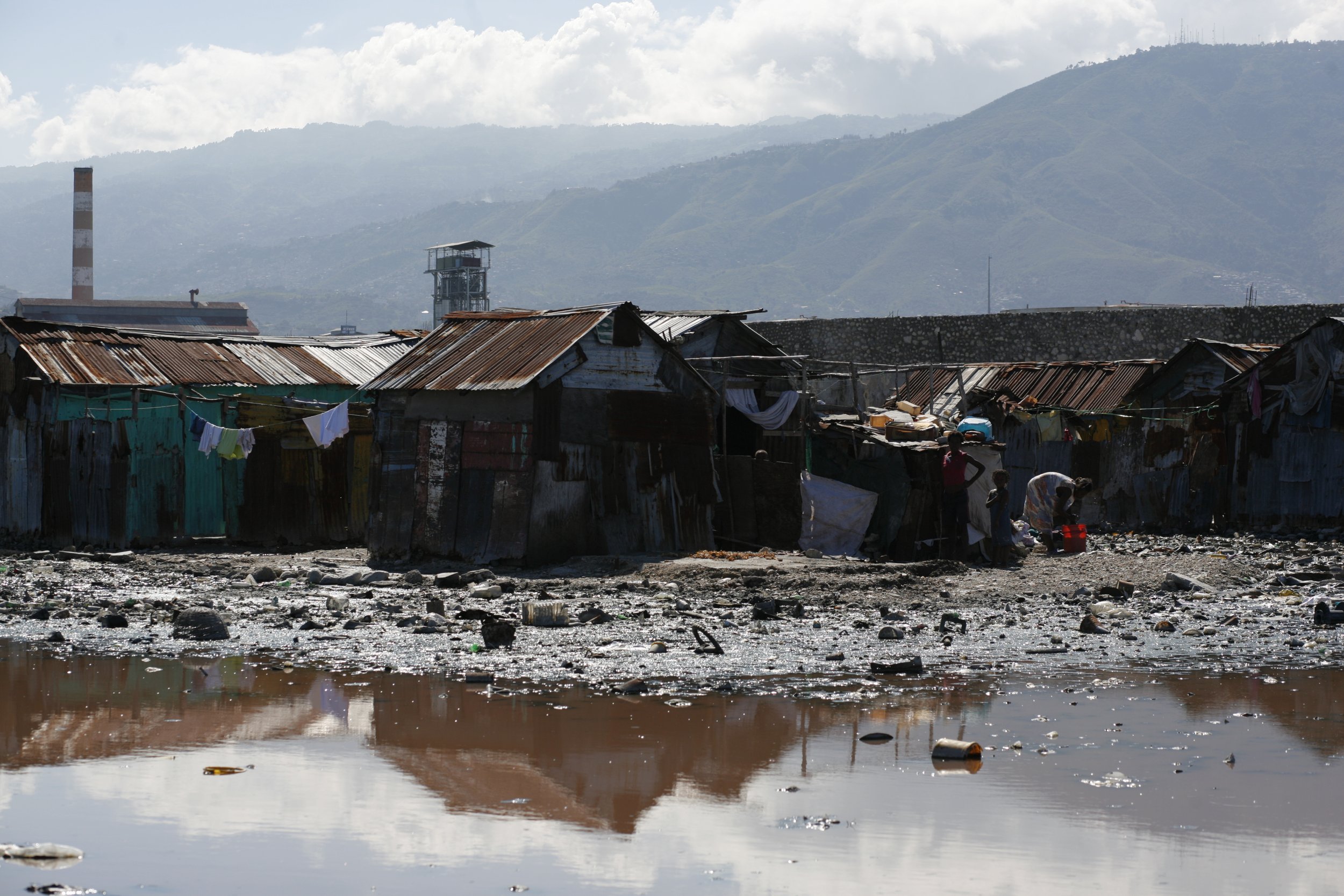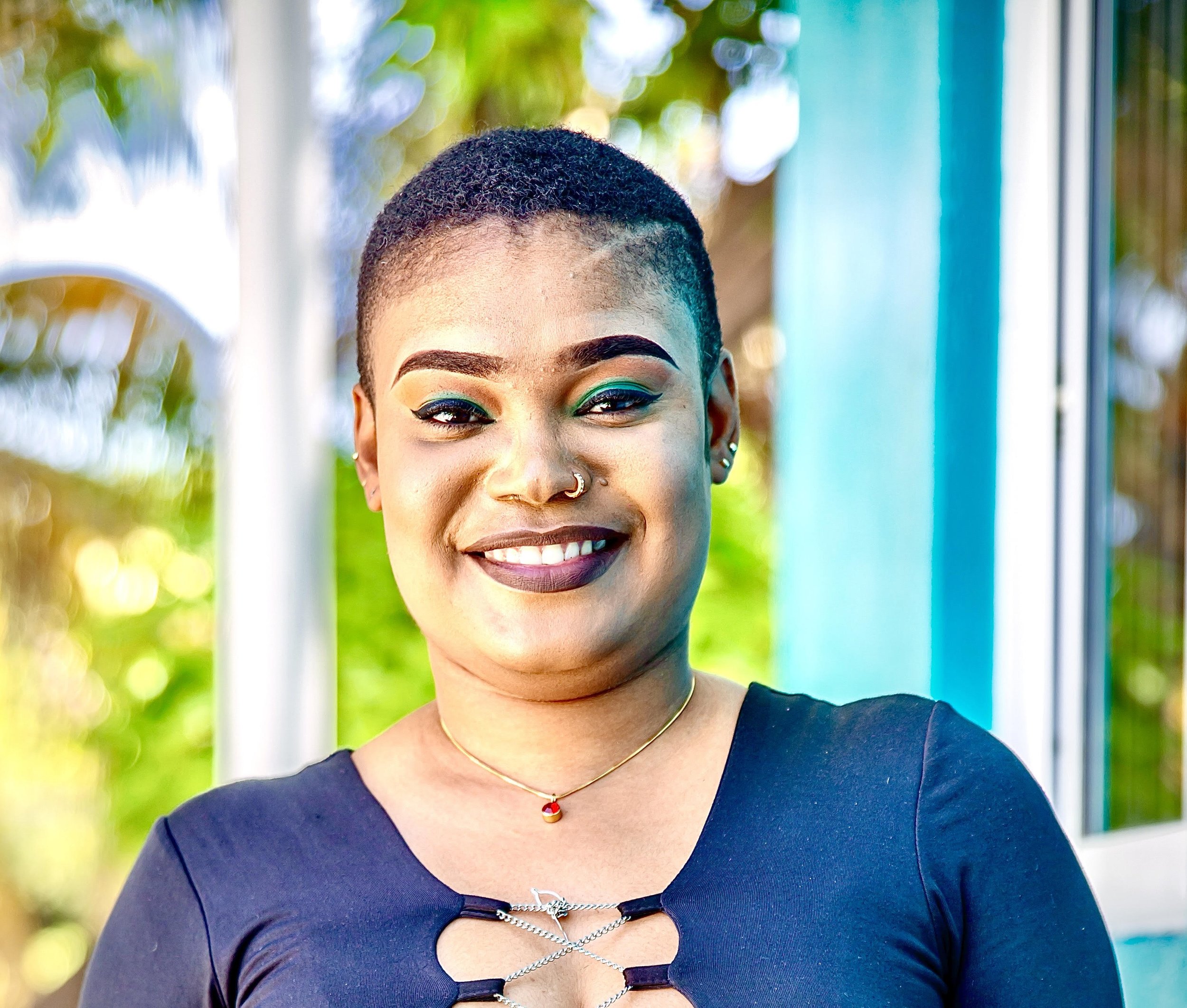Never Abandoned: A Mother’s Day Story
Old Enough to Remember
At thirty-five, Rosenie is one of the older moms at the Heartline Maternity Center today. The baby boy she carries with her is her third child, and she is old enough to be many things some of the other mothers are not. Most of all, she is old enough to remember.
She was 22 for the terrible earthquake of 2010 and the destruction and death that followed, which means she remembers the days before, when the National Palace stood strong at the heart of the city, when the mass graves had not been dug, when cholera had not yet struck.
She remembers elections – she was old enough to vote in many of them. There hasn’t been a national election in Haiti since 2016.
She remembers raising children in a country that might have been poor, might have been wracked by storms and earthquakes, but mercifully was not at war.
Now, she will raise her youngest in a country without a palace, without democracy, a country mired in a brutal gang war that neither side will ever really win.
For years, she was a street vendor, in the tradition of the Madan Sara. Her husband worked at the Société Nationale des Parcs Industriels, an industrial park that was home to several manufacturers and their staff.
Like so many Haitians, the gang war and its economic fallout took their livelihoods away. For Rosenie, the unpredictable violence destroyed her business. No street market survives a gunfight. Her husband was laid off as the market for Haitian manufacturing crumbled.
As we speak, I lose her gaze. “Everything I had, everything I had built through sacrifice, was destroyed in an instant,” she says.
Today, they live in a shack in Cite Soleil, Haiti’s largest and most infamous slum. The rent is 7,500 gourdes, around $50 USD, and that keeps them there.
“Even if it's a shack, it's all we have,” Rosenie sighs, resigned. She pays for her older children to go to school, but at times, they go on empty stomachs, without a lunchbox. “It breaks a mother's heart to see her children leave without eating,” she confesses, tears in her eyes.
Never Abandoned
It is in this context that Rosenie delivers her third child. Pregnancy in Haiti is dangerous: maternal complications are a top-10 cause of death for Haitian women, and maternal mortality rates mirror war-torn nations like Rwanda, Sudan, and Afghanistan.
But she’s found her way to the Heartline Maternity Center, where the maternal mortality rate is zero. There, Rosenie attended prenatal Thursdays, where she found herself in a cohort of other mothers – not alone, but in community. The MC staff tended to her and her unborn son with care. She was fed nutritious meals each time she visited, she took classes on infant care, and when it came time for delivery, she had a safe place to go.
Still, it was not easy, and what should have been a moment of joy turned into a fearful ordeal. The delivery was complicated due to the baby’s position; progress was slow and difficult.
“I thought I was going to die,” Rosenie recounts, her voice trembling. She’s right. Normally, this is the kind of thing that kills Haitian moms.
She spent four days at the Maternity Center, at one point suffering severe hemorrhaging, but the Heartline midwives quickly took charge and stabilized her – and Haiti did not lose yet another of its precious mothers.
“I was taken care of from beginning to end, never abandoned,” she says.
Rosenie and her family are like thousands of other Haitians. They were born into a complicated, beautiful, difficult country, adapted to its ways of life, and learned how to build stability and structure within it. Then, over the course of a few short years, even the scraps of normality are torn from their hands. They were tasked with finding a path through poverty, and now they are tasked to find a path through war as well.
Still, Rosenie does not lose faith. She is not resigned to circumstance.
“As long as we are alive, there is hope. But for how much longer?” she wonders. Despite the uncertainty of the future, she feels immense happiness as she holds her baby close. This fragile little being gives her the strength to keep going, to fight every day to offer him a better life, a better tomorrow, committed to the unrelenting struggle of a Haitian mother.
It is no longer a struggle Rosenie faces alone. With her little one in her arms, she’ll regularly return to the Maternity Center for postpartum classes and check-ups, and the two of them will get the care and support they need through meals, medicine, and education.
Rosenie expresses deep gratitude for the Heartline Maternity Center team. “Without them, I don’t know what I would have done. They provide not only medical care – but also hope – to women like me.”
The Mission
Heartline cannot end the gang war. We cannot restart elections, or bring back the international aid that has been cut off. We cannot return other NGOs to Haiti’s shores or rebuild the crumbling hospitals.
But we can save Rosenie.
It may not make headlines or change Haiti’s geopolitical future, but ask her if it’s enough. Ask her husband who waits at home, praying that she returns safely. Ask her children.
Haiti has changed, and now even the proudest government officials admit it is a nation at war. Our mission to invest in Haitian families is now a wartime operation. So we’ll work in shadow and sunlight, in crowded alleys and cloistered delivery rooms, at the edges of the city and in the heart of the slums, to preserve and protect every life we can, because every single Haitian is made in the image of God. Every single Haitian has worth beyond measure.
We hope you feel the same way. We hope you’ll be our collaborators across the world.
If you’re ready to be a part of this mission, you can make a gift to the Maternity Center today. The team in Port-au-Prince will put it to use saving lives.
Plus, the Heartline Honor Wall is back this Mother’s Day – when you give, tell us about a woman that inspires you, and she’ll be honored all year on our Honor Wall. Give $50 or more, and we’ll send you – or your chosen recipient – a beautiful banana paper magnet of your choice.
About the Author
Aljany Narcius
Haitian journalist Aljany Narcius is currently pursuing a Master 2 in Media Management, online from France’s University of Lille. With ten years of experience in the fields of journalism and communication, Aljany is a linguist who uses the Creole language as her weapon in the fight against social inequalities, exploitation, and all kinds of violence.
Editorial and additional writing provided by the Heartline Haiti team.






